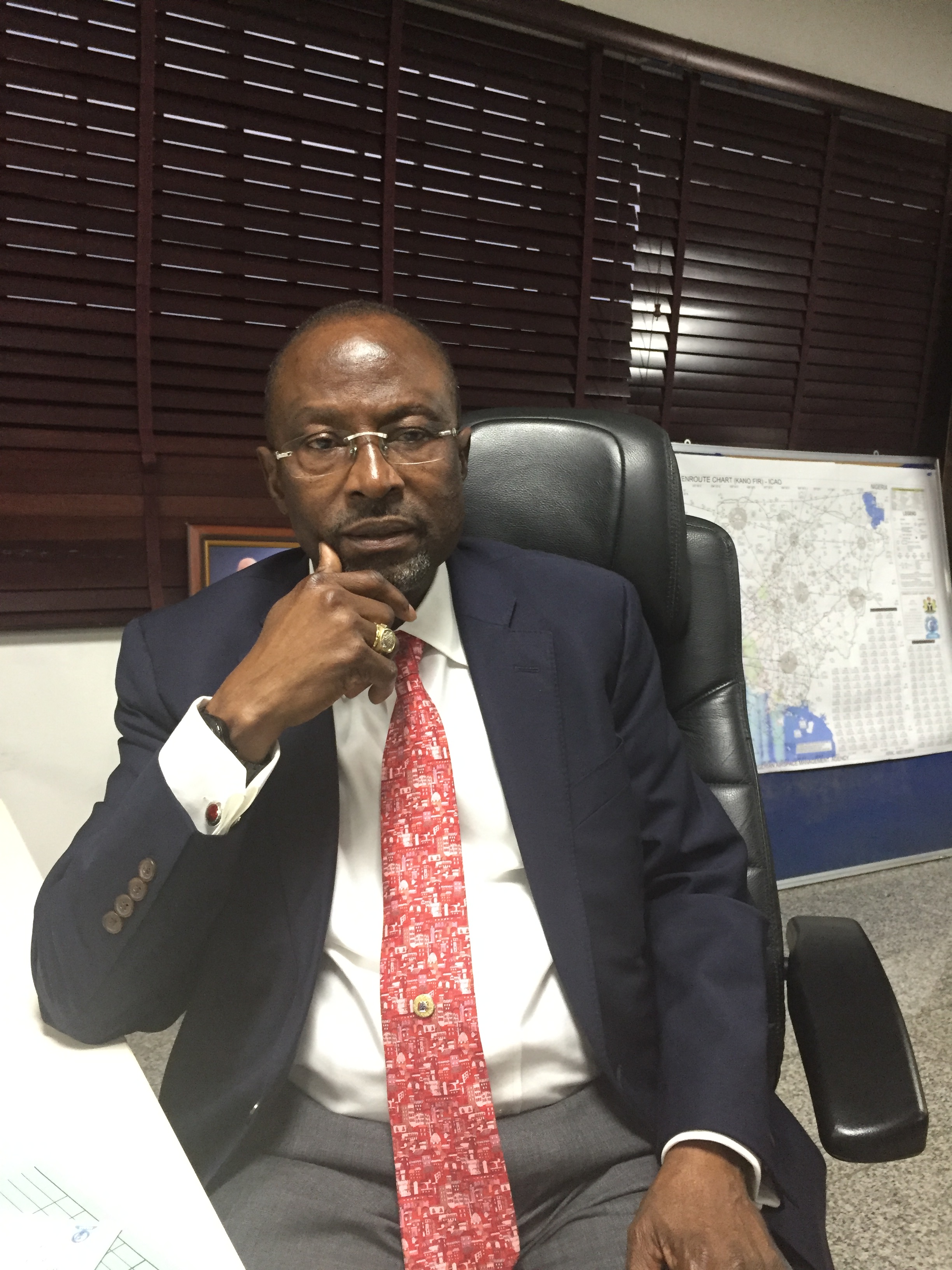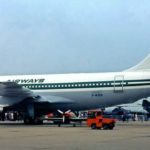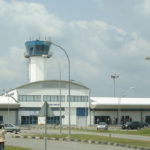
The Managing Director of the Nigerian Airspace Management Agency, Captain Fola Akinkuotu said safety in the airspace has improved significantly and that is why the country has not recorded any accident or major incident in the last five years. He attributed the achievement to the collaboration of the aviation agencies that work together to ensure that flying in Nigeria is safe. He spoke to Chinedu Eze. Excerpts:
You have been a pilot, when would you say you have had the safest airspace?
You have asked me an objective question. In the last five years we have not had any accident. Can we say that the airspace is not safe? In answer to your question, I would say the airspace is safe. If you ask me what are the contributory factors, my answer will be: it is the collaborative effort of all the aviation agencies. I will start from the regulator, the Nigerian Civil Aviation Authority (NCAA).
The regulator has been more robust because all others are just service providers. The regulator is the one that ensures that all service providers are doing the right thing. And they have the ability to sanction or call them to order. Then the service providers, I am sure that the federal Airports Authority of Nigeria (FAAN) has been responsive.
Our meteorological department has improved, now we have Doppler weather radar, we are able to harness other information to predict low level wind shear. We are able to give weather information that are more reliable and therefore ensure better planning for the airlines. The training school (the Nigerian College of Aviation Technology (NCAT) Zaria) is more productive; over the years it has been providing skilled manpower for the industry. These are things that have contributed to it.
Looking in-house, at ourselves, the Nigerian Airspace Management Agency (NAMA). How about NAMA? Communications have improved, navigation has improved, surveillance has improved and in each of these aspects that NAMA is involved in, the improvement contributes not only in terms of what is obvious, like better equipment, better radio service. What I think people don’t often see is that, if we reduce your work load, we leave you space to meet emergencies and abnormals or think better.
Look at the job of a journalist, if you had to be transcribing all that I am saying as I speak, it will not be as easy as when you record it and then you are transcribing. Maybe you can even have a tool where as I speak into a recorder it writes out the word; even with accent inhibitions, it makes your job easier. What I am trying to state here is that the service that we have provided has made the flying environment safe and easier.
So the pilot’s task is reduced by technology and therefore he has a little more leeway to be able to respond to situations that might be abnormal. There is no doubt in my mind, and I am not saying this because I work for NAMA, that the airspace has significantly improved.
In the past when you were flying, what were the major safety challenges in the airspace which no more exists now?
Let’s start from communications, we had issues of communications in the past, if you were flying from Sokoto in those days you can only climb to 14000 feet (Fl140) and then you start shouting to Kano to let you a higher flight level. Now, from an efficiency point of flight operations; that is not good.It means I fly to Flight level 140 and cruise for some time until I can get to talk to Kano for a higher level. My company (the airline) is not going to be having fun because we would be burning fuel at low level. I am not going to be having fun because I spend all my time trying to raise Kano to give me a higher level. But because of the improvement in communication, it means I can now have continuous climb to reach my cruise altitude, the airplane flies better, the company happier because of fuel efficiency. And because I don’t have to talk so much it gives me a little bit more time to do other things.
Let’s look at navigation, which is the process of planning, and controlling the movement of a craft from one place to another. One of the more crucial aspects of navigation is getting from one place to another, like on approaching Lagos on coming from Abuja or Kaduna I have to switch to approach navigation facility. The question will be what kind of navigation aid will make it easier for you to land in Lagos? So what kind of navigation aid do we have today?
When we were in school at NCAT in Zaria, which is a while ago, Nigerians were going to learn how to use ILS in Cotonou in the 1970s but today everybody is crying for an ILS. VOR (Voice Omnidirectional Radio Range), which is radio signal transmission, was the prevailing approach facility then but it is not a precision approach aid. But an ILS is A precision approach navigation aid. We have in Lagos; we have in Abuja, Kano, Port Harcourt, Maiduguri,Yola, Calabar, Ibadan, Ilorin and many more airports. We have ILS in all the major airports and virtually everywhere. And even recently, when Port Harcourt ILS was damaged we replaced it. In Lagos, we have put brand new ILS; we have also put a brand new ILS in Kano, and Kaduna also. Right now we want to improve approach for Benin by putting an ILS there. Work is going on now at the Benin airport to install ILS. So I make bold to say that most pilots now when they are taking their approach plate, they are not taking VOR approach plate, pilots go for an ILS approach.
Talking about surveillance, the last couple of years were most dramatic because we have effective surveillance of the airspace with radar that covers every part of Nigeria. Pilots know and the airline feels the pinch more when there is no surveillance.
When there is no traffic it will be easy to fly without surveillance, but during the peak period or in the rainy season when everybody is flying the busy routes, how do you begin to see where you are and where I am without surveillance?
The job of making sure that we are kept separate and safe even when we deviate is possible with the kind of surveillance that we have. We can go into a lot of technicalities, if the air traffic controller want to separate two people, he asks what is your distance, or altitude or what radial are you on. So you provide your radial, your distance and your altitude and he tries to compare it mentally with where other traffic are. However, with radar he sees it right on the monitor. So he can sees this may lead to a conflict it becomes easy for the controller to separates them.
Also, when everything is normal, you assign specific routes to flights, so if somebody is coming from Kano he is on a specific airway. If somebody is coming from Port Harcourt he is on a specific airway. But what if because of weather the flight from Kano has deviated to right or left, he has deviated from his planned route. Then you will be asking what altitude, and what distance. But on the other hand when radar guidance is available, on the monitor the ATCo can see the airplanes in the airspace.
In Lagos ordinarily you will be told on take off, to turn right to join the airway but the air traffic controller has the picture and traffic permitting, he can say clear take off, left turn direct. Now that saves you like five minutes. Five minutes of fuel is not pocket change for airlines. So, gradually what you can see here is that, number one: compared to the time when we didn’t have surveillance and now, there has been an improvement in safety and an improvement in efficiency. We grant that sometimes the time lines get blurry. I know when they started radar in Nigeria, we were all excited. Then we lost it and then we got it back.
In the evenings, for example, we have a lot of traffic; pilots will always complain that his flight is put on the hold. Yes the hold is meant for safety and it is done for safety reasons. Sometimes also we have to do it deliberately and we notify them because we have to train people for the abnormal in the unlikely event that the radar goes out. The air traffic controller must still be able to be knowledgeable on how to guide the airplane using procedural control. But if you put flights in a stack and they are in the hold they are not happy.
Using radar has made landing and takeoff easier and also the monitoring of flights in the airspace by the Air Traffic Controllers. It also makes it easy for airlines because flights don’t stay undue long by not needing to hold in the airspace before landing. Whenever we have to do procedural control it is a bit more expensive for the airlines because the flights may be slightly longer in the airspace and burn more fuel. Even if you tell a pilot to do a full ILS, he elect to request for a straight in approach. As a pilot that is what I always ask for when available and suitable.

With the new equipment including Performance Based Navigation (PBN) what percentage of fuel do you think you will be saving for the airlines?
I would think that as we expand the scope of air traffic control guidance, I think that we can cut fuel saving by one percent or more. A flight is going from Lagos to Abuja and it shaves off five minutes by landing five minutes earlier than the scheduled flight time. That is big saving in fuel for the airline. Even a conservative one minute time saving for an airline means a lot.
NIMET works with air traffic control and weather has been a very major issue in flight and safety, so what is the sequence of receiving on-time weather report from the agency by the Air Traffic Controllers?
We receive weather update half hourly and it varies from airport to airport. Like Enugu and others is an hour interval. But at the busy airports it is every 30 minutes. But we also have on-time, real time weather forecast such that whenever the ATC presses his console he gets the latest weather report.
Do you think the number of aircraft that over fly Nigeria’s airspace has increased?
I cannot answer your question strictly by numbers; I would like to answer by what revenue impact it has made in our coffers. Our revenue from over fliers has increased. The revenue trail is like following where the money is and if there is a decrease in revenue that means there is decrease in traffic. I can tell you that there has been some increase in revenue. So that obviously means that there is better use of our airspace.
Now there is improvement in the mix of everything: surveillance, navigation and communication, so this is integrated system that has improved safety in the airspace?
NAMA is a CNS, Communication Navigation and Surveillance provider, that is our business. There is always improvement in anything that we do. So if you close your eyes and say that you don’t want to take advantage of the improvement; then we will be hurting yourself. Yes, the airspace I told you before is safe but can we improve on what we already have? Definitely. We want to put Category 3 ILS in Lagos and Abuja to start with, then we go to Kano and Port Harcourt in the next phase.
How is this going to improve safety in the airspace? It is true we already have ILS but Category 3 ILS will now give you greater latitude to be able to operate into the airport even when there is significant weather challenge due poor visibility . So, if you are able to do in a year the volume of one million aircraft movement, for example and with this aid, you can increase it to 1.5 million that will be significant improvement. So we should not be contented with what we already have. We are going to move into ADSB (Automatic Dependent Surveillance Broadcast), that will give us better surveillance monitoring. We have signed an MoU with a company that is going to provide cloud based ADSBs. This does not mean that we abandon the traditional system; we are now increasing layers, and layers of safety. The thing that has kept aviation safe and will keep us safe is redundancy. So the more levels of redundancy that we have; the more safety that we have. The more safety that aviation has the more patronage it will receive.
For me, NAMA is doing everything to be safe, we will continue to embrace technology, we will continue to embrace and enhance the human person by training and we will continue to bring in newer equipment to enhance safety. We are never going to sit down at the point where we say we are contented.

Do you think that the improvement of safety in the airspace attracted more foreign airlines to operate in Nigeria?
Yes because it give the foreign airlines a higher level of confidence, the more you have enhanced your CNS, the better they will feel.
THISDAY






